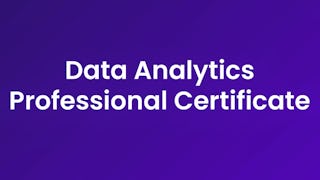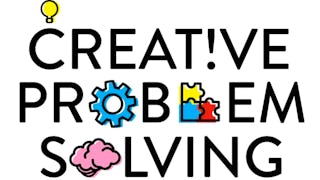Filter by
SubjectRequired
LanguageRequired
The language used throughout the course, in both instruction and assessments.
Learning ProductRequired
LevelRequired
DurationRequired
SkillsRequired
SubtitlesRequired
EducatorRequired
Explore the Public Economics Course Catalog

University of New Mexico
Skills you'll gain: Social Sciences, International Relations, Political Sciences, Economic Development, Global Marketing, Socioeconomics, Cultural Diversity, World History, Business Economics, Economics, Business, Financial Market
 Status: Free Trial
Status: Free TrialUniversity of Illinois Urbana-Champaign
Skills you'll gain: Economics, Supply And Demand, Policy Analysis, Business Economics, Public Policies, Socioeconomics, Consumer Behaviour, Decision Making, Market Analysis
 Status: NewStatus: Free TrialStatus: AI skills
Status: NewStatus: Free TrialStatus: AI skillsDeepLearning.AI
Skills you'll gain: Data Storytelling, Web Scraping, Google Sheets, Data Visualization, Data Presentation, Spreadsheet Software, Large Language Modeling, Tableau Software, Data Literacy, Pandas (Python Package), Time Series Analysis and Forecasting, Probability & Statistics, Extract, Transform, Load, Statistical Analysis, Statistics, Statistical Modeling, Matplotlib, Data Visualization Software, Data Validation, Data Processing

HEC Paris
Skills you'll gain: Investment Management, Portfolio Management, Investments, Asset Management, Wealth Management, Financial Market, Finance, Risk Management, Financial Regulation, Performance Analysis, Risk Analysis, Microsoft Excel

University of Minnesota
Skills you'll gain: Creativity, Creative Thinking, Creative Problem-Solving, Brainstorming, Cognitive flexibility, Persistence, Curiosity, Resourcefulness, Innovation, Growth Mindedness, Adaptability, Motivational Skills
 Status: Free Trial
Status: Free TrialSkills you'll gain: Dashboard, Business Intelligence, Business Reporting, Data Storytelling, Data Presentation, Data Visualization Software, Scalability, Performance Tuning, Interviewing Skills, Stakeholder Communications, Project Scoping, Performance Analysis, Performance Improvement, Presentations, Information Privacy

Yale University
Skills you'll gain: Investment Banking, Risk Management, Financial Market, Portfolio Management, Business Ethics, Investments, Finance, Financial Services, Behavioral Economics, Banking, Philanthropy, Financial Regulation, Securities (Finance), Leadership Studies, Non-Profit Accounting, Governance, Economics, Policy, and Social Studies, Public Administration, Insurance

Universitat Autònoma de Barcelona
Skills you'll gain: Ancient History, Culture, World History, Anthropology, Art History, International Relations, Cultural Diversity, Writing, Political Sciences, Economics, Research
 Status: Free Trial
Status: Free TrialUniversity of California, Davis
Skills you'll gain: Network Analysis, Data Wrangling, Natural Language Processing, Web Scraping, Social Sciences, Data Ethics, Databases, Artificial Intelligence, Research, Simulations, Big Data, Systems Thinking, Data Science, Research Methodologies, Machine Learning, Data Collection, Computational Thinking, Economics, Policy, and Social Studies, Graph Theory, Agentic systems

University of Michigan
Skills you'll gain: Instructional Design, Adult Learning Principles, Education Software and Technology, Patient Education And Counseling, Learning Theory, Learning Styles, Creativity, Decision Making, Technology Strategies
 Status: Free
Status: FreeGeorgia Institute of Technology
Skills you'll gain: English Language, Language Competency, Oral Comprehension, Language Learning
 Status: Free Trial
Status: Free TrialUniversity of Illinois Urbana-Champaign
Skills you'll gain: Data Storytelling, Marketing Analytics, Google Analytics, Web Analytics, Analytics, Trend Analysis, Digital Marketing, Data Analysis, Marketing, Digital Advertising, Data Collection, Information Privacy
In summary, here are 10 of our most popular public economics courses
- International Business I: University of New Mexico
- Market Equilibrium, Government Policy & Elasticity: University of Illinois Urbana-Champaign
- DeepLearning.AI Data Analytics: DeepLearning.AI
- Investment Management in an Evolving and Volatile World by HEC Paris and AXA Investment Managers: HEC Paris
- Creative Problem Solving: University of Minnesota
- Decisions, Decisions: Dashboards and Reports: Google
- Mercados financieros: Yale University
- Egiptología (Egyptology): Universitat Autònoma de Barcelona
- Computational Social Science: University of California, Davis
- Instructional Methods in Health Professions Education: University of Michigan










